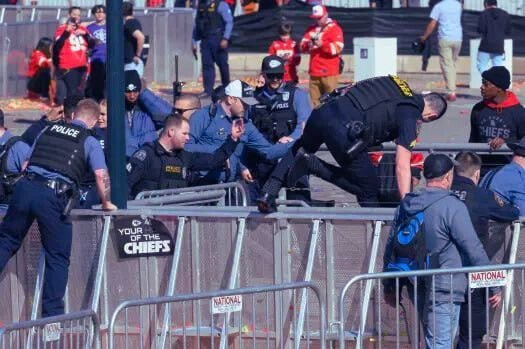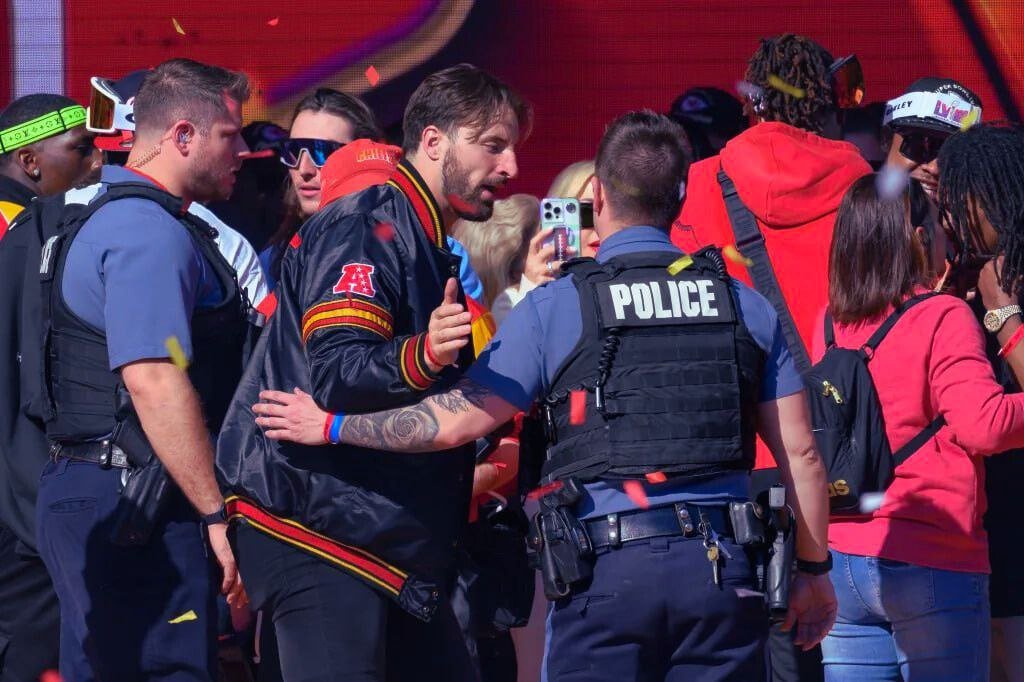Contents

Introduction to the Case
On February 5, 2020, what was supposed to be a joyous celebration for Kansas City Chiefs fans turned into a scene of chaos and terror. During the Super Bowl rally held to honor the Chiefs’ first championship in 50 years, an unexpected and tragic event unfolded. Lyndell Mays, now accused of being the shooter, allegedly opened fire amidst the crowd gathered in downtown Kansas City. The incident occurred near the intersection of Grand Boulevard and Pershing Road, a central location where thousands of fans had assembled to celebrate their team’s victory.
The shooting incident resulted in severe injuries to five individuals, leaving the community in shock. Although no fatalities were reported, the severity of the injuries and the trauma inflicted on the victims and witnesses cannot be understated. The celebratory atmosphere was abruptly disrupted, casting a shadow over what should have been a historic and joyous occasion for the city.
The impact of this event on the community has been profound. The sudden eruption of violence during a public celebration has heightened concerns about safety at large gatherings, prompting discussions on preventive measures to ensure such incidents do not recur. The shock and sadness felt by the community have been palpable, as what should have been a moment of collective triumph was marred by senseless violence.
As the trial date for Lyndell Mays approaches, the community remains keenly interested in the proceedings. The case has not only legal implications but also social ones, as it touches on issues of public safety, justice, and the resilience of a community recovering from a traumatic event. The upcoming trial is expected to provide clarity on the events of that fateful day and bring a sense of closure to those affected by the incident.
The accusations against Lyndell Mays are severe and multifaceted, encompassing a range of criminal charges. Mays is primarily charged with attempted murder, following the alleged shooting at the Kansas City Chiefs Super Bowl rally. Alongside this, he faces charges of assault and illegal possession of a firearm. The prosecution has been diligent in compiling a comprehensive case against Mays, supported by substantial evidence gathered through various means.

One of the critical pieces of evidence is the witness testimonies. Several individuals present at the rally have come forward, providing detailed accounts of the incident. These testimonies are pivotal as they offer firsthand perspectives, helping to construct a timeline and narrate the events leading to the shooting. The consistency and corroboration among the witnesses have fortified the prosecution’s stance.
In addition to witness statements, video footage from the event has been obtained and scrutinized. This footage captures the chaotic moments during the rally, with some clips purportedly showing Mays in the vicinity of the shooting. The prosecution is relying on these visual records to place Mays at the scene, thereby linking him directly to the crime. Advanced forensic techniques have been employed to enhance and analyze the footage, aiming to extract clear, actionable insights.
Forensic analysis extends beyond video evidence, encompassing ballistic tests and fingerprint analysis. The firearm recovered at the scene has been subjected to rigorous examination. Ballistic experts have matched the bullets found at the scene to the weapon, and fingerprints lifted from the firearm are being cross-referenced with Mays’ known prints. These scientific analyses are crucial in establishing a direct connection between Mays and the weapon used in the crime.
Overall, the prosecution’s case against Lyndell Mays is built on a solid foundation of varied and corroborative evidence. The combination of witness testimonies, video documentation, and forensic findings aims to substantiate the charges of attempted murder, assault, and illegal possession of a firearm, presenting a compelling argument for the court to consider.
Legal Proceedings and Key Dates
The legal proceedings leading up to the trial of Lyndell Mays, the accused shooter at the Chiefs Super Bowl rally, have been extensive and meticulous. Mays was arrested on February 5th, 2023, shortly after the incident occurred. His arrest marked the beginning of a complex legal journey, characterized by several significant events and decisions.
Mays’ preliminary hearing took place on March 10th, 2023, where the prosecution presented evidence to establish probable cause. During this hearing, key witnesses provided testimonies, and crucial pieces of evidence were discussed. The judge ruled that there was sufficient evidence to proceed to trial, setting the stage for the next phase of the legal process.
Following the preliminary hearing, a bail hearing was conducted on March 25th, 2023. The defense argued for a reduced bail amount, citing Mays’ ties to the community and lack of prior criminal history. However, the prosecution emphasized the severity of the charges and potential flight risk. Ultimately, the judge set bail at $500,000, a decision that underscored the gravity of the case.
Significant pre-trial motions have played a pivotal role in shaping the trial’s landscape. One notable motion was the defense’s request to suppress certain pieces of evidence, which was deliberated on April 15th, 2023. After thorough consideration, the judge denied the motion, allowing the contested evidence to be presented during the trial.
The trial date has been officially set for September 18th, 2023. Legal experts anticipate that the trial will be both lengthy and complex, given the high-profile nature of the case and the substantial amount of evidence to be examined. Attorney Michael Roberts, who is closely following the case, commented, “This trial is expected to be one of the most scrutinized in recent times, given the public interest and the critical implications of the outcome.”
As the trial date approaches, both the prosecution and defense are preparing for what promises to be a rigorous and exhaustive judicial process. The legal community, along with the general public, will be closely monitoring the proceedings, keenly aware of the trial’s significance.
Community and Fan Reactions
The Kansas City community and Chiefs fans have been profoundly impacted by the shooting incident at the Super Bowl rally, and the upcoming trial of Lyndell Mays has become a focal point for their emotions. Local leaders have expressed their deep concern over the incident, emphasizing the need for justice and increased safety measures to prevent such tragedies in the future. Mayor Quinton Lucas stated, “This senseless act of violence has no place in our city. We are committed to ensuring that justice is served and that our community can come together to heal.”
Chiefs team representatives have echoed these sentiments, with the franchise working closely with city officials to support the victims and their families. In a public statement, the Chiefs organization emphasized their commitment to the safety and well-being of their fans, stating, “Our thoughts and prayers are with those affected by this tragic event. We are dedicated to supporting the community and ensuring a safe environment for all during our events.”
Fans have also voiced their concerns and hopes for justice. Many have taken to social media to express their solidarity with the victims and their desire for a swift and fair trial for Lyndell Mays. The collective sentiment among fans is a mixture of sadness, anger, and a strong resolve to see their community heal. Fan groups have organized several rallies and memorials in honor of the victims, demonstrating their unity and support for one another during this difficult time.
In response to the incident, both the city and the Chiefs organization have implemented additional safety measures for future events. These include increased security presence, enhanced surveillance, and more stringent entry protocols to ensure the safety of attendees. These efforts aim to restore a sense of security and trust within the community, reassuring fans that their well-being is a top priority.
Overall, the Kansas City community and Chiefs fans have shown remarkable resilience and solidarity in the face of this tragedy. As the trial date for Lyndell Mays approaches, the collective hope is that justice will be served, and steps will be taken to prevent such incidents from occurring in the future.
OUR SITE : toinewsalert.com

